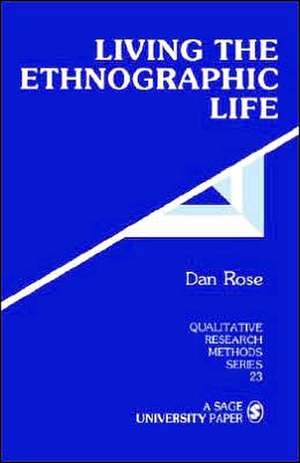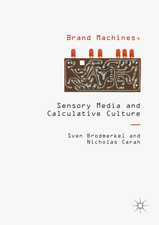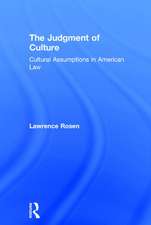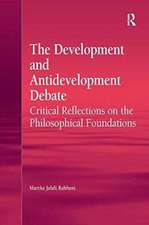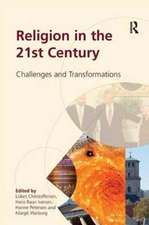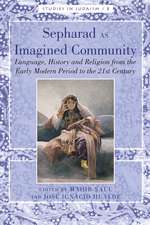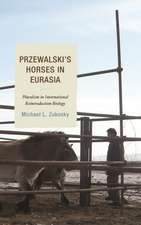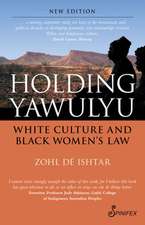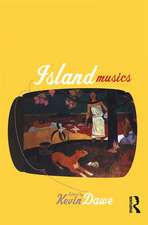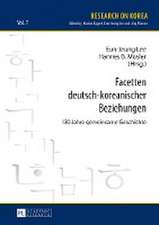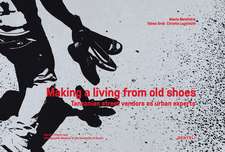Living the Ethnographic Life: Qualitative Research Methods, cartea 23
Autor Dan Roseen Limba Engleză Paperback – 28 noi 1990
Din seria Qualitative Research Methods
-
 Preț: 286.15 lei
Preț: 286.15 lei -
 Preț: 322.19 lei
Preț: 322.19 lei -
 Preț: 273.68 lei
Preț: 273.68 lei -
 Preț: 286.15 lei
Preț: 286.15 lei -
 Preț: 323.44 lei
Preț: 323.44 lei -
 Preț: 323.15 lei
Preț: 323.15 lei -
 Preț: 321.79 lei
Preț: 321.79 lei -
 Preț: 323.70 lei
Preț: 323.70 lei -
 Preț: 321.52 lei
Preț: 321.52 lei -
 Preț: 322.05 lei
Preț: 322.05 lei -
 Preț: 134.60 lei
Preț: 134.60 lei -
 Preț: 288.79 lei
Preț: 288.79 lei -
 Preț: 290.33 lei
Preț: 290.33 lei -
 Preț: 317.26 lei
Preț: 317.26 lei -
 Preț: 287.82 lei
Preț: 287.82 lei -
 Preț: 290.54 lei
Preț: 290.54 lei -
 Preț: 289.56 lei
Preț: 289.56 lei -
 Preț: 288.04 lei
Preț: 288.04 lei - 18%
 Preț: 715.81 lei
Preț: 715.81 lei -
 Preț: 291.07 lei
Preț: 291.07 lei -
 Preț: 290.69 lei
Preț: 290.69 lei -
 Preț: 288.41 lei
Preț: 288.41 lei -
 Preț: 289.18 lei
Preț: 289.18 lei -
 Preț: 317.26 lei
Preț: 317.26 lei -
 Preț: 290.33 lei
Preț: 290.33 lei -
 Preț: 290.69 lei
Preț: 290.69 lei -
 Preț: 317.10 lei
Preț: 317.10 lei -
 Preț: 315.75 lei
Preț: 315.75 lei -
 Preț: 290.69 lei
Preț: 290.69 lei -
 Preț: 290.33 lei
Preț: 290.33 lei -
 Preț: 315.36 lei
Preț: 315.36 lei -
 Preț: 290.54 lei
Preț: 290.54 lei -
 Preț: 290.69 lei
Preț: 290.69 lei -
 Preț: 290.69 lei
Preț: 290.69 lei -
 Preț: 291.07 lei
Preț: 291.07 lei -
 Preț: 285.77 lei
Preț: 285.77 lei -
 Preț: 289.77 lei
Preț: 289.77 lei -
 Preț: 315.36 lei
Preț: 315.36 lei -
 Preț: 288.04 lei
Preț: 288.04 lei -
 Preț: 289.95 lei
Preț: 289.95 lei -
 Preț: 285.62 lei
Preț: 285.62 lei -
 Preț: 288.19 lei
Preț: 288.19 lei -
 Preț: 285.62 lei
Preț: 285.62 lei -
 Preț: 316.12 lei
Preț: 316.12 lei -
 Preț: 314.76 lei
Preț: 314.76 lei
Preț: 288.19 lei
Nou
Puncte Express: 432
Preț estimativ în valută:
55.15€ • 57.37$ • 45.53£
55.15€ • 57.37$ • 45.53£
Carte tipărită la comandă
Livrare economică 14-28 aprilie
Preluare comenzi: 021 569.72.76
Specificații
ISBN-13: 9780803939998
ISBN-10: 080393999X
Pagini: 64
Dimensiuni: 140 x 216 x 4 mm
Greutate: 0.1 kg
Ediția:New.
Editura: SAGE Publications
Colecția Sage Publications, Inc
Seria Qualitative Research Methods
Locul publicării:Thousand Oaks, United States
ISBN-10: 080393999X
Pagini: 64
Dimensiuni: 140 x 216 x 4 mm
Greutate: 0.1 kg
Ediția:New.
Editura: SAGE Publications
Colecția Sage Publications, Inc
Seria Qualitative Research Methods
Locul publicării:Thousand Oaks, United States
Cuprins
Form of Life
Editors' Introduction
Acknowledgements
Form of Life
Reversal
Narrative Lives
Editors' Introduction
Acknowledgements
Form of Life
Reversal
Narrative Lives
Notă biografică
As professor of landscape architecture at Penn, Daniel Rose taught in the areas of ethnography, cultural landscape, corporations, and nature and culture. He was promoted to professor emeritus in 1998.
Descriere
Rose makes a passionate plea to break down the corporate mould of ethnography and reshape it as a democratic form of thinking and being. He links the origins of ethnography with the travel journals left by colonizing European traders, merchants and soldiers, then shows to what extent modern ethnography, centred on corporate organized universities, has adopted this imperial philosophy and structure. By breaking away from this model he offers an alternative which is concerned with its subject and which links the life of the ethnographer to the ethnography. Through the use of poem, story and epigraph as well as scholarly analysis, Rose opens up the window on the possibility of ethnography as a way of life.
